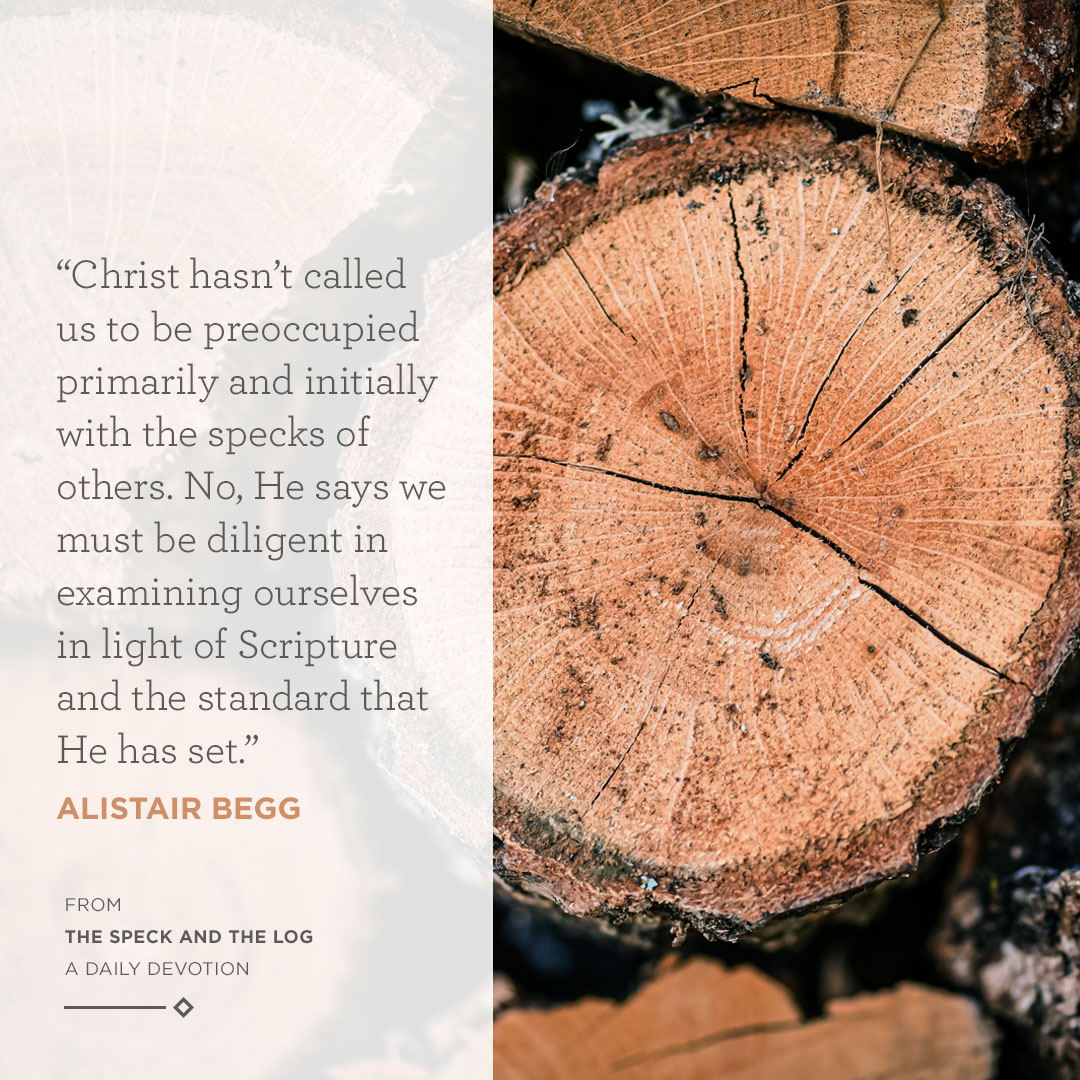Transformed: A 9-Day Plan on Jesus’ Sermon on the Plainنموونە

THE SPECK AND THE LOG
“How can you say to your brother, ‘Brother, let me take out the speck that is in your eye,’ when you yourself do not see the log that is in your own eye? You hypocrite, first take the log out of your own eye, and then you will see clearly to take out the speck that is in your brother’s eye.” LUKE 6:42 (ESV)
I recall a time when, sitting at a desk in an exam, I turned the paper over and immediately began to look around to see if everybody else felt as bad about the first question as I did. Then I was startled by the teacher’s exhortation: “Never mind looking at others. Just concentrate on yourself!”
Jesus makes a similar point in these verses, using a striking metaphor to instruct His listeners to deal with their own sin before they attempt to point out the sins of others. The word Jesus uses for “speck” often describes very small bits and pieces of straw or wood. In contrast, the word for “log” refers to a load-bearing beam in a house or structure. If I have a log in my eye, it clearly requires my attention more than a speck in someone else’s does.
As fallen creatures, we’re prone to think it’s our responsibility to deal with everybody else’s spiritual condition before dealing with our own. Yet Christ hasn’t called us to be preoccupied primarily and initially with the specks of others. No, He says we must be diligent in examining ourselves in light of Scripture and the standard that He has set.
Jesus’ instruction poses a great challenge. Sometimes we may point out the faults of others under the guise of caring about their spiritual condition. But if we have not first been honest about and ruthless with our own sins, that is hypocrisy! We often fall prey to the mistaken notion that if I can find your flaw and deal with you, then I won’t have to deal with my own issues. It’s far more pleasant to tell someone else about their dreadful condition than it is to face our own.
If we truly want to help others, then we must first be prepared to face the dreadfulness of our own hearts—to acknowledge with Robert Murray M’Cheyne that “the seeds of all sins are in my heart.”[1] When we understand and believe that, then when we go to approach others we will stand on the low ground of genuine love and humility rather than the high ground of presumption. Between those two perspectives there’s all the difference in the world.
- How is God calling me to think differently?
- How is God reordering my heart’s affections—what I love?
- What is God calling me to do as I go about my day today?
[1] Quoted in Andrew Bonar, Memoir and Remains of Robert Murray M’Cheyne (Banner of Truth, 1995), p 153.

Scripture
About this Plan

Over the centuries, millions have been stirred by Christ’s lessons on the Law of Love, the Golden Rule, forgiving one’s enemies, and bearing good fruit. But are these famous words in Luke 6 really just a collection of inspiring moral teaching? Or do they offer us something even greater? In this 9-day plan, we learn how they can lead to a transformation that can only be accomplished by Jesus Himself.
More
پلانە پەیوەستەکان

Destined for Greatness: Unraveling the Mystery of Your Calling - a 5-Day Devotional by Samantha B. Nqoko

Growth 360 Blueprint for Moms: Reflect, Refocus, and Activate Your Life for God’s Purpose

Letters to the 7 Churches: A Revelation Study

BibleProject | Heaven and Earth on the Mountain

Discipleship for the Christian Mom: Embracing Your Calling to Follow and Lead in Faith

Biblical Success = Running Our Race - Guide Unto Our Path

Try the Bible Experiment

Charis Bible College Fall Bible Reading Plan

God Has Not Forgotten You: When Life Is Turned Upside Down
